|
Message from the Executive Director
Patric Barbieri
|
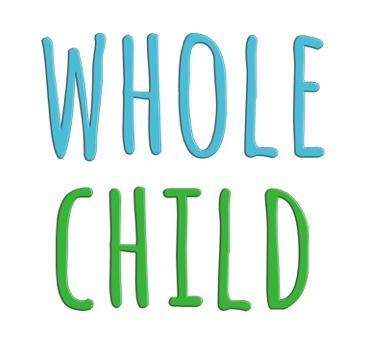
Keeping Perspective of the Whole Child
When I was in middle school, I had a friend who created his own landscaping business when he was 13 years old. He talked about his business quite a bit. I remember working for him on a few jobs after school and on weekends. He was always busy, and he would ask friends if they wanted to work for him. With the money he earned, he bought bigger and better equipment.
My friend struggled in school. Going to school was painful for him, and I remember he was always talking about how teachers didn't like him. He would go to classes for extra help, but we really didn't know what kind of learning disability he had. When we got to high school, he started to withdraw from all his friends and just immersed himself in his business. We didn't know it at the time, but his difficulty in school impacted him much more significantly than we thought. To the rest of us, he seemed to be confident and have it all together, as his business was a big part of his life.
Recently, I was reflecting on a conference I attended a few years ago. The speaker was describing how some medical schools were training physicians. The medical field was becoming so specific, so specialized, that they were concerned that doctors were not able to look at the whole patient. One of the ways they were trying to solve this problem was to have the doctors take art classes. In these classes, they were taught to look at art differently, to create perspective,
which ultimately helped them to step back and look at the whole patient.
Does it seem to you that education has been going in the same direction for many years? We have specialists for so many different needs. We certainly need these specialized services, but when each person is focusing specifically on one particular aspect of the child, does that create a barrier to keeping our perspective of the "whole" child? When a car is built on an assembly line, each worker has a specific job to contribute, but in the end, someone steps back and makes sure the whole car meets the quality standards before it goes out the door. In our schools
, we specifically measure certain goals and objectives, but how is the whole child measured? How is the outcome judged? What is the quality standard? Can this be measured in a test?
I am sure you know people who went through school and their grades and performance were average or even below average, but they became very successful in life. Their grades in school were not a measure of their future success. People like my friend in middle school have something that makes them successful that is not part of the school curriculum
. How do you measure grit, determination, self-confidence, creative thinking, and emotional intelligence? These skills are more important in life than letter grades, but they are not measured in school.
How do we as parents and educators
connect all our services for the benefit of the whole child? How can each of us know if our specialty links up with all the other specialties to achieve the vision in the end? We cannot work independently and expect that everything will just synergize. If I have five different people teaching me five different chords on the guitar, that does not mean I will know how to play a song at the end.
Our outcomes for our students have one very important component that we must be asking about at every meeting: How will what we are doing make the student more independent? That is the bottom line, isn't it? We want our students to succeed post 22
and be ready for work, school, social interactions, and independent living.
After high school, my friend became a builder and became extremely successful. He understood business, he was a natural salesman, he had a knack for learning skills that no one thought he could learn. I ran into him many years after high school and we talked. He said his teachers and school counselors
always used to focus on what he was struggling with. He went to school and heard about nothing but
his weaknesses. Day in and day out, he had to face his most painful lack of skills. When he went home, he focused on his strength, and that was his business. It was the only place he felt empowered and it built his self-esteem.
If the school philosophy was to look at my friend as a whole person, they would have stopped focusing on his weaknesses and celebrated his strengths, or at least found a better balance between the two. Luckily, the measure of his success was not going to be determined by his grades. He had the confidence in himself to build on his strengths and balance his life. He knew he was getting an "A+" in business, even if no one else ever gave him the grade. If his report card had reflected Grit, A+. Determination, A+. Hard work, A+. Initiative / Self-starter
, A+," that would have been a more accurate measure of who he was as a whole, and perhaps going to school would not have been so painful.
Patric
|
|
Arlington High School Employment Center
By: Kristin Spinosa, Vocational Counselor
|
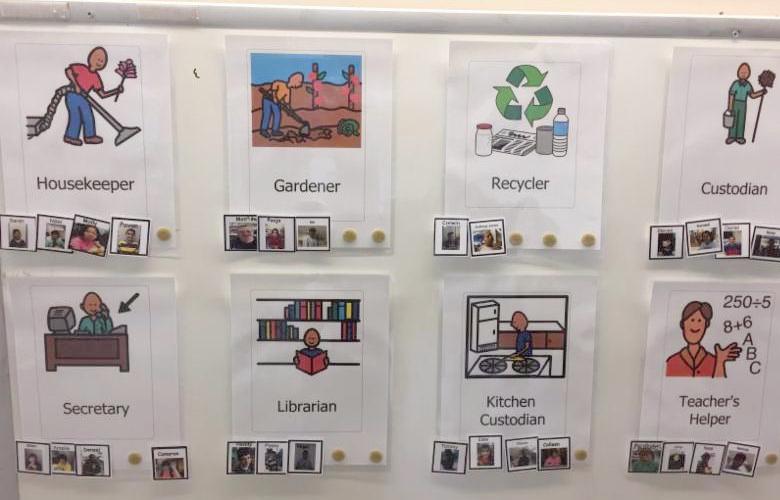
E
xposure is the only way to determine your vocational interests and strengths! How do you know what you want to do in your future if you don't give it a try, or at least try something similar? Whether it's volunteering, supported employment, or competitive employment, it's important to get your feet wet!
This academic school year, with the help and support of many incredible Arlington High School (AHS) staff members, the AHS Employment center was created. Students rotate through 8 on-campus vocational experiences including: Housekeeper, Gardener, Recycler, Custodian, Secretary, Librarian, Kitchen Custodian, and Teacher's Helper - on a monthly basis.
These vocational experiences exist within LABBB Classrooms, as well as Arlington High School Classrooms, to maximize inclusivity! Students arrive to the AHS Employment Center, sign-in for their vocational experience, collect their materials, complete the associated duties, and finally, sign-out!
The AHS Employment Center allows students to practice various vocational skills including the following: social skills, on-campus travel training, and vocational responsibility. Most importantly, students are encouraged to try a variety of dissimilar vocational experiences! It acts as an informal interest inventory! The AHS Employment Center also promotes vocational skill building before beginning any off-campus opportunities.
The AHS Employment Center is continually growing, and we hope to expand the variety of vocational experiences next academic school year. Please contact me with any thoughts!
|
|
Spot Group in Ms. Brown's Room
By: Lori Parent, Occupational Therapist
|
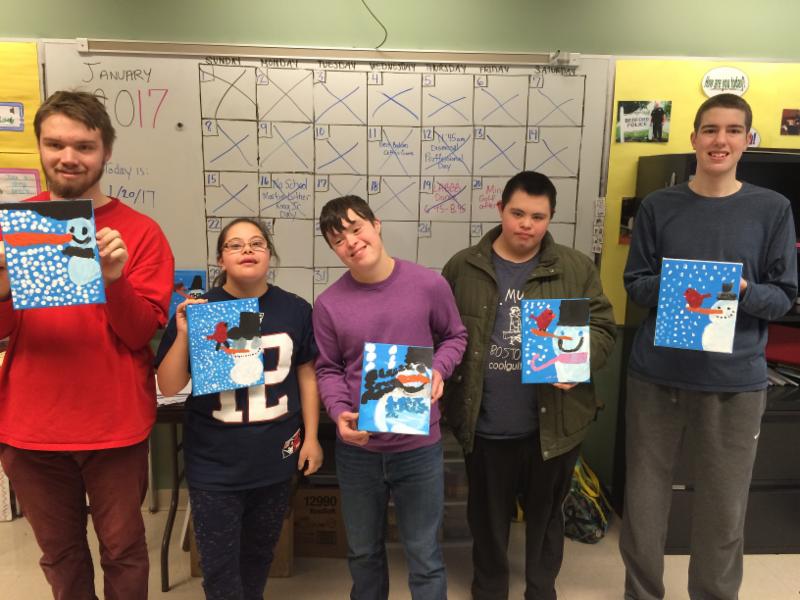
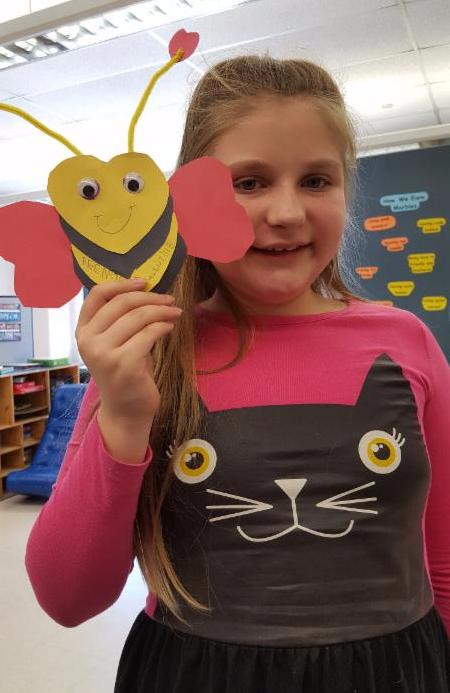 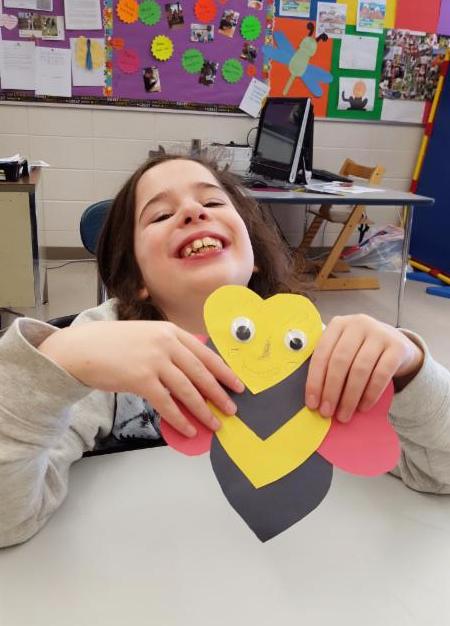
The students in Miss Brown's classroom participate in a weekly SPOT Group. It is a combined speech and OT group where the students create a craft by following a sequence of directions. This group allows the students to work on a variety of skills like fine motor development, following written directions, and spatial awareness, as well as asking questions and improving overall independence with the bonus of a fun craft to take home.
Crafts are often themed for the season, month, or holiday. This week, the students created a "Bee Mine Valentine" craft. They used templates to trace hearts on different colored construction paper. Once the shapes were cut out, the students needed to read the directions carefully to place the hearts in the correct sequence and placement on the craft to create the bee. When they were finished the students were very proud to show off their hard work.
|
|
Clinical Corner: Helping Kids Learn to Calm Down
By: Lisa Gurdin, BCBA, Clinical Coordinator
|

We all get frustrated from time to time. When we get overly frustrated, we call on our coping strategies to help us to calm down and refocus. Taking a break or walk, calling a friend, or asking for help are common strategies. This is easier said than done for our students, especially in the moment. Once they get upset and frustrated, they become less able to think about the situation, let alone do something other than get more and more upset. This difficulty, in part, is due to their reduced ability to be self-aware and to consider alternative ways to manage situations. As a result, our students need the adults in their lives to help them to calm down and refocus.
Our inclination is to simply tell them to "just calm down." However, this only makes them more agitated. If they could calm down, they would. They need our help to notice their frustration, prompt them to use a strategy, and praise them for doing so. The key is to prompt these strategies when you see the first signs of frustration. These differ for all of us, but may include sweating, increase in vocal volume, pacing, shouting, crying, swearing, repetitive speech, etc.
Here are some specific strategies:
-
Use a Zones of Regulation visual - Have a zones of regulation visual available at all times. When you see your student showing signs of frustration, show them the visual, help them identify their zone, and offer suggestions for calming strategies.
Student Example:
One of our elementary students just started using a calming routine at home. When she is in the Red or Yellow Zone, she goes to another room, counts to 10 or 20, and then checks in with her mom. If she is still in the red or yellow zone, she repeats the counting. This continues until she is in the green zone. As soon as she is in the green zone, her mother
praises her for using her calming strategy and they return to what they were doing. This can be done in the school or work setting as well.
Students should practice the strategies often so that they are more readily able to use them in the moment. Remember that it takes time and a lot of practice to really learn and consistently use calm down techniques independently, but it can be done!
|
|
Recreation News and Events
By: Paula Rizzo, Integration and Recreation Coordinator
|

On Wednesday, March 1st, the LABBB Best Buddies officers worked together to 'Spread The Word To End the Word.' Nick Tzannes, a Lexington High student who is a Lexington Best Buddies officer, designed the shirt. LABBB Lexington High, Bedford High and Chenery Middle School all sold the shirts.
Arlington High School hosted this year's
Say No To R Word Assembly. Speakers included: Jacob Myers, LABBB student speaker, Donna Vanderlinden, LABBB staff person speaker, Will Darling, Best Buddies Facility Advisor, and Dr. Janger, Arlington High School Principal, who spoke on behalf of Arlington High School. President of the Arlington Chapter of Best Buddies, Harshini Senthil, was the host of the Assembly. It was a very moving event.
Spring Bowling and Wednesday Recreation Programs are set to start in March. We have a good number of students signed up for both of these activities.
Boxing: The third session of boxing is also starting up in mid March. This new program has been a huge success for our students.
Special Olympics: This year's event will be held on May 3, 2017. Registration forms will be going in the mail and should be
returned by April 3, by mail or online signup. The Best Buddy chapters are gearing up to provide over 200 athletes with buddy matches for the day of the event. All of our LABBB Programs, from elementary to High School students, participate. This is the
13th annual Special Olympics for LABBB. Please come and join over 400 volunteers, parents and staff to cheer on the athletes. It is a fun day for all.
LABBB Dance Updates:
Time change for LABBB dances. The dances will be 6:30-8:30PM.
The Lexington Community Center closes at 9:00PM, and we want to make sure that we are out of the building for them to be able close at the scheduled time.
Save The Dates
March 15:
Staff VS Students Basketball Game.
April 13: LABBB Prom at the Burlington Marriott
April 27: LABBB Glow Golf Fundraiser at Stone Meadow in Lexington.
May 3: Special Olympics, Rene Rancourt is ready and looking forward to it.
|
|
LABBB Fundraiser: Glow Golf
|
Flyers will be out in the mail soon. If anyone is interested in playing, please email
[email protected]
to sign up. You can sign up as a foursome or individually. Spaces will go quickly.
|
|
Berklee Institute for Arts Education and Special Needs
|
 We want to share a very exciting new opportunity for students with special needs.We feel that this is an important part of our students' education.
We want to share a very exciting new opportunity for students with special needs.We feel that this is an important part of our students' education.
LABBB has a set of Core values and one of them is to promote more Music, Arts and Theater.
|
|
LABBB Awarded the Top School Fundraising Program at the Polar Plunge!
|
Thank you to everyone who participated and donated to the LABBB 2017 Polar Plunge. These funds are used to support the LABBB / Best Buddies Special Olympics!
LABBB Student, Tyler Crotty, also set up his own team "Tyler's Polar Plungers!"
Here are some pictures from the plunge at Revere Beach on Saturday, March 4.
|
|
LABBB Social Media and Podcast
|
|
|
|
Parent Resources
|
(FNFC) Friday Night Fun Club, Bedford, Ann Seamans: [email protected] or 781-275-8381
(MMArc) Minute Man Arc Afternoon Recreation Afternoon Recreation & Friday Nights (16+yrs), Darcie Heller: [email protected] or C:978-201-2481/W: 978-287-7936
(TILL) Toward Independent Living & Learning Travel: Springboard Club, Dedham, high independence, Dale Belcher: [email protected] or 781-302-4619 (RARA) Recreational Adult Resource Association, Lowell Contact: [email protected] or 978-453-5598
Riverside Community Care: DDS Family Support Center, Woburn Kaley Stoner: [email protected] or 781-686-6073 Lifelinks - DDS Family Support Center, Chelmsford, Rachel Ward Sullivan: [email protected] or 978-349-3040 *verify current + open to public
Greater Marlborough Programs Inc - Social & Recreation (DDS Family Support), Marlborough Jim Karami: [email protected] or 508-485-4227 ext. 1006
Alternative Leisure (ALCS), Bedford, Drew Bilillies: [email protected] or 781-275-0023
Concord Recreation, Anna Wood: awood@concordma.
(SNAP) Special Needs Arts Program Chorus & Art, Lexington Contact: [email protected] or 781-325-8025
(GWArc) Greater Waltham Arc Recreation/Plus: Mike Mullins: [email protected] or 781-899-1344 x4120 Newton Therapeutic Recreation w/ Newton Athletes Unlimited, NewtonMark Kelly: [email protected] or 617-796-1527
Kids in Disability Sports (K.I.D.S.), Lowell, Info: [email protected] or 866-712-7799
978-264-0985
Burlington Therapeutic Recreation, Burlington, Laurel Rossiter:
|
|